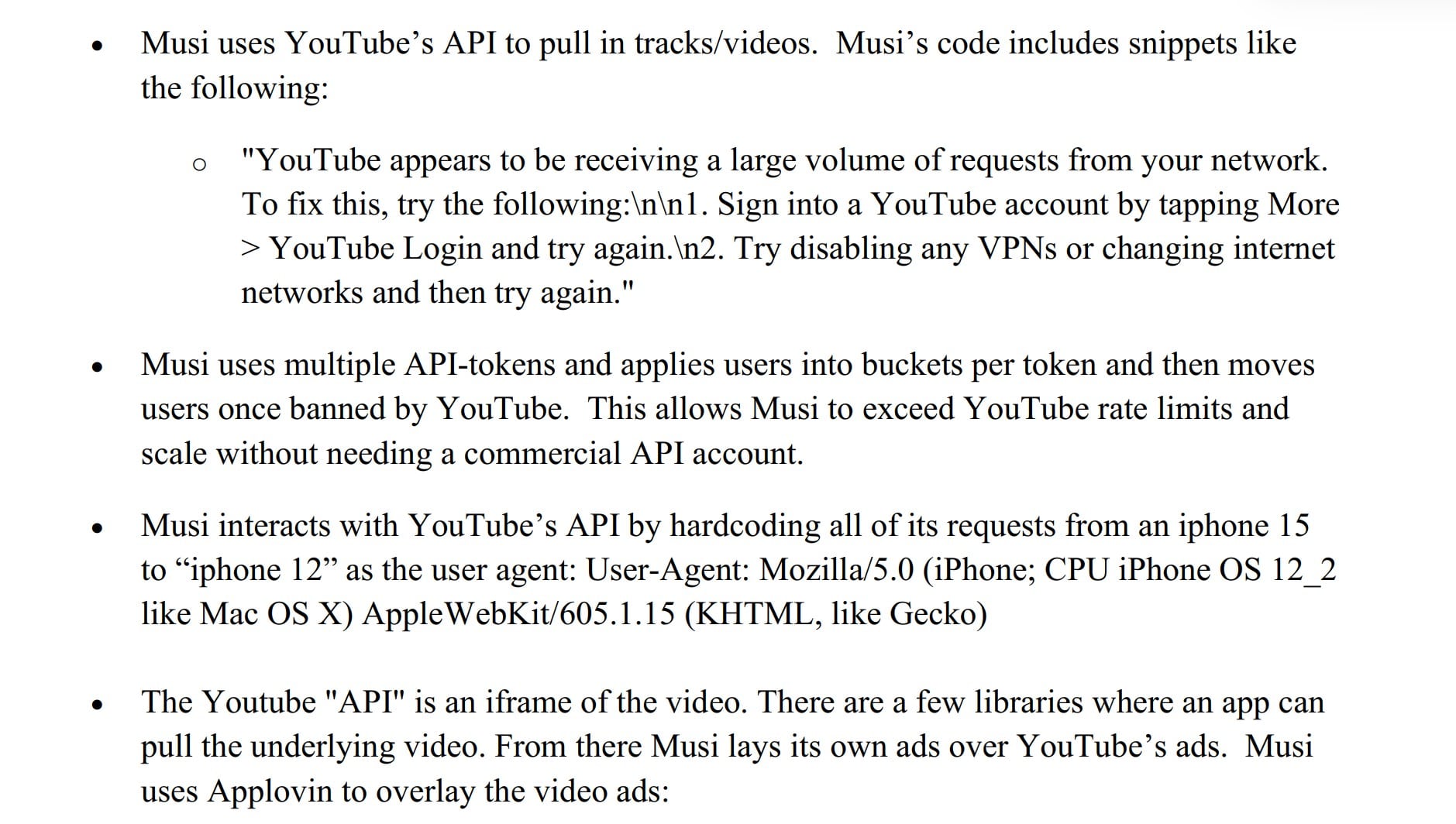Last month, the company behind music streaming app Musi sued Apple for breach of contract, following the removal of its app from the App Store. Musi hoped for a swift reinstatement through a preliminary injunction, but Apple believes the court should deny the request. The tech giant argues that the delisting is allowed under its developer contract, stressing that the removal was not an impulsive decision.
In September, Apple removed the popular music streaming app Musi from its App Store. The delisting is significant, as the app has millions of users.
Apple’s action didn’t come as a complete surprise. Music industry groups had been trying to take Musi down for months, branding it a ‘parasitic’ app that skirts the rules.
Music group IFPI took the lead, calling on other music industry players and YouTube to complain to Apple as well. This mounting pressure eventually paid off.
The delisting puts the future of Musi directly at risk. The company initially hoped to resolve the matter with Apple behind closed doors. The tech giant was unwilling to reverse its decision, however, so the streaming app took the matter to court.
Musi Sues Apple over ‘YouTube-Triggered’ Removal
In a complaint filed at a California federal court last month, Musi sued Apple for breach of contract, as well as a breach of the implied covenant of good faith and fair dealing. The music app believes that the delisting was unjustified and wants Apple to reinstate it immediately.
“Apple removed the Musi app based upon unsupported accusations from a third party who has failed to respond to Musi’s communications. Worse, Apple was fully aware that the third party had failed to substantiate its claims to Musi,” said the company behind the app.
The third-party in question is YouTube. According to Musi, Apple acted based on a five-word complaint from ‘YouTube Legal’ that was sent late July. Attempts by Musi to discuss the matter with YouTube remained unanswered, but Apple removed the app nonetheless.
Preliminary Injunction
For Musi, the matter amounts to an existential threat. The music app built its entire business on the iOS platform and without it being available in the App Store, the service will ultimately perish.
Faced with this conundrum, Musi requested a preliminary injunction to have the app reinstated as soon as possible. The removal has already caused irreparable harm, it argued, but a swift injunction can stop the bleeding.
“By removing the Musi app from its only viable distribution platform, Apple has exiled Musi from its customer base—thereby threatening the company’s survival,” Musi wrote.
“Musi is therefore entitled to a preliminary injunction to stop Apple from continuing to breach the Developer Agreement by refusing to list or otherwise making unavailable the Musi app.”
Apple Opposes Injunction
Apple responded in court last Friday, opposing Musi’s request for a preliminary injunction. The company argues that the terms of the Apple Developer Program License Agreement (DLPA) allow the company to delist apps “at any time, with or without cause.”
Aside from this contractual freedom, Apple also counters Musi’s allegation that it took action based on little more than a five word complaint from YouTube.
“That is false, and Musi knows that it is false,” Apple writes, mentioning a variety of other complaints, including those submitted by music group IFPI and the music publishers’ association NMPA.
The NMPA letter, for example, went beyond a simple complaint and detailed how Musi allegedly uses multiple free YouTube API-tokens to avoid paying licensing fees, while inserting its own ads.

From NMPA’s complaint
Apple says it doesn’t take a position in the legal dispute between Musi, YouTube, and many of the other third parties that complained. However, the provided context suggests that the delisting isn’t the result of just one brief removal request.
‘Existential Exaggeration’
The opposition brief repeatedly stresses that Apple has the right to delist apps based on its own contracts. Even if that’s in doubt, there’s no need for a preliminary injunction.
Apple says that while new users can no longer download the app, existing Musi users are still able to use the installed app. This means that Musi can continue to generate revenue.
The app reportedly generated millions of dollars in advertising revenue per month in the past and there is no evidence that it is in financial trouble now, Apple argues.
“Musi provides no evidence relating to its financial condition and no evidence that it is unable to survive until a decision on the merits in this case,” Apple notes.
“In fact, public reporting suggests that Musi earned more than $100 million in advertising revenue between January 2023 and spring 2024 and employs ten people at most. If true […], Musi is not at imminent risk of extinction.”

From Apple’s Opposition
All in all, Apple sees no reason for the court to grant the injunction. In addition to violating Apple’s rights, the proposed injunction also goes against the interests of all parties who complained that their rights are being infringed, the company notes.
Musi has yet to respond to Apple’s opposition. It is clear, however, that the app is fighting a legal battle that will be closely watched by rightsholders, YouTube, and many independent iOS developers.
—
A copy of Apple’s opposition to Musi’s motion for a preliminary injunction, filed as the California federal court, is available here (pdf)
Hope you enjoyed this news post.
Thank you for appreciating my time and effort posting news every day for many years.
2023: Over 5,800 news posts | 2024 (till end of October): 4,832 news posts
RIP Matrix | Farewell my friend ![]()



3175x175(CURRENT).thumb.jpg.b05acc060982b36f5891ba728e6d953c.jpg)
Recommended Comments
There are no comments to display.
Join the conversation
You can post now and register later. If you have an account, sign in now to post with your account.
Note: Your post will require moderator approval before it will be visible.